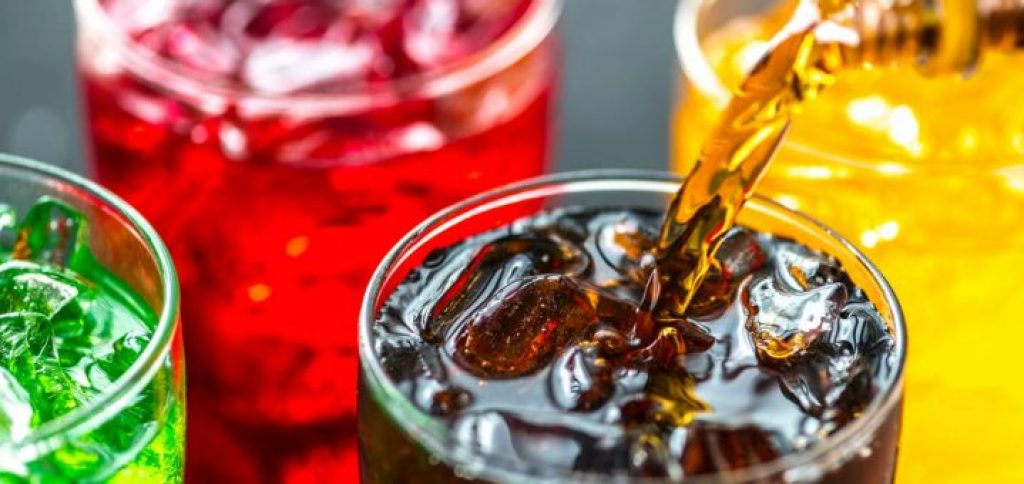Sugar tax on soft drinks: useful or a waste?

The United Kingdom has began levying a sugar tax on high-sugar soft drinks on April 6, 2018 – something which is paid by manufacturers and , as a rule, passed on to consumers. The tax has prompted numerous discussions surrounding sugar in beverages – and not just in Great Britain.
The law, adopted in Great Britain in March 2016, mandates that manufacturers of soft drinks pay a tax of 18 pence (almost 21 cents) per liter for products that contain more than five grams of added sugar per 100 milliliters. For drinks that have more than eight grams of sugar per 100 milliliter, the tax is even higher – 24 pence per liter.
According to the consumer organization foodwatch, before the law even took effect, it resulted in the British market leader Coca-Cola cutting the sugar content of its Fanta and Sprite soft drinks from 6.9 to 4.6 grams and 6.6 to 3.3 grams, respectively. Great Britain’s second largest refreshment beverage maker, Britvic, lowered the sugar content of its own brands so dramatically that 94 percent of them are not subject to the tax. The trade companies Tesco and Lidl also reacted quickly, introducing new recipes for their brands so they wouldn’t be taxed.
The Office for Budget Responsibility (OBR), which monitors the British budget, adjusted the tax revenue expected between 2018 and 2019 from its original estimate of 520 million pounds to some 240 million pounds as a result of the proactive measures taken by such companies. There are reasons enough for foodwatch to support such a tax for Germany. And the move would be entirely in keeping with the aim of the World Health Organization (WHO), which has identified sugar in beverages as one of the main causes of obesity and type 2 diabetes.
The Association of the German Non-alcoholic Beverage Industry urges individual responsibility
The Association of the German Non-alcoholic Beverage Industry (Wirtschaftsvereinigung Alkoholfreie Getränke, or wafg) has a very different view. They believe that “Consumer taxes on individual products or nutrients such as sugar are not a useful tool in the fight against obesity. Pathological obesity requires serious treatment rather than campaigns.”
The trade association also points out that consumers in Germany have increasingly cut back their consumption of high-sugar beverages even without these kinds of regulations. Statistical data backs this up. For instance, consumption of sugary soft drinks including classic Coca-Cola and combination cola drinks totaled 64.5 liters per capita in 2016 but amounted to only 62.1 in 2017.
Meanwhile, German consumers don’t seem to have a clear opinion with regard to the effectiveness of a tax on sugary beverages. According to a recent survey from opinion research institute Yougov commissioned by foodwatch, out of a total of 2000 adult survey participants, 52 percent – only a slight majority – would support a “soda tax.” According to a Mintel study, however, 75 percent of German consumers of carbonated soft drinks agree that manufacturers should do more to reduce the amount of sugar in their products.
International experience with sugar tax is positive overall
Broad discussions about the usefulness of taxes on sugary soft drinks are taking place today not only in Germany, but throughout Europe and the world – and they are backed by experience gathered from numerous other countries aside from the UK where levies have been in effect. Among these are Portugal, Estonia, Belgium, Norway, France, Hungary, Mexico, South Africa and several US states.
In Mexico, for instance, there has been a tax of one peso per liter since 2014, which corresponds to about a ten percent tax. After the tax was introduced, Mexicans reportedly consumed six percent less high-sugar beverages in the first year and ten percent less in the second year.
In Berkeley, California, which was one of the first US cities to introduce a soft drink levy, a 15 to 25 percent tax on sugar-sweetened beverages resulted in a drop in consumption of 21 percent among low-income consumers in the same year it was introduced. The Portuguese health ministry reported that the consumption of beverages with the highest sugar content was cut in half in 2017, the year that the tax on sugary products first came into effect there.
Just as in Great Britain, however, the decline was also due in large part to a change in recipes. According to the WHO, the introduction of the tax in Hungary resulted in a drop in soft-drink consumption for one-fifth of the residents. But there are also examples that don’t point to success. For example, because consumers in Denmark simply went to Sweden or Germany to get their sugary beverages, the country abolished its soft drink tax.
Benefits of a proportional tax
Health economist Renke Schmacker from the German Institute for Economic Research (Deutsches Institut für Wirtschaftsforschung) deals intensively with the issue of taxes on sugar-sweetened beverages and believes that they certainly can bring about a reduction in their consumption.
In his view, a particularly positive tax effect would be generated by a proportional tax, like the one introduced in South Africa in April that is based on the sugar content in beverages. With this tax, the first four grams of sugar per 100 milliliters of beverage are tax-free and every additional gram thereafter is taxed at two South African cents.
“The advantage is that manufacturers have a constant incentive to lower the sugar content and it won’t result in a cluster of beverages just under the threshold value,” Schmacker explains. He thinks this kind of soft drink sugar tax could have a significant impact on future consumption habits of children and youth who are still acquiring their taste for the beverages.
Great Britain also appears to be giving serious consideration to this target group, which is evident by the government’s plan to use the revenue generated by the sugar tax on beverages primarily to promote sports in schools.
Artificial sweeteners …
This would all lead one to believe that a sugar tax and physical health could actually go hand in hand. But – and this might be a bitter pill for some to swallow – sugar in soft drinks, which would be subject to the sugar tax in its original state, is often replaced by artificial sweeteners.
However, according to a Mintel study, 25 percent of French, 29 percent of German, 22 percent of Italian, 27 percent of Spanish and 30 percent of Polish consumers don’t think that artificial sweeteners in beverages taste nearly as good as sugar. Not to mention the fact that artificial sweeteners aren’t exactly known to promote health. An investigation published in the Canadian Medical Association Journal in 2017 pointed out that the daily intake of sweeteners increases the risk of weight gain, diabetes and heart diseases.
… versus natural low-calorie sweetening
In the future, one solution could be to intensify the use of natural, low-calorie sweetening concepts. In this regard, it is an essential task for the soft drink industry to consistently think in new directions, particularly against the backdrop of consumers’ increasing health consciousness. For instance, steviol glycosides, the compound of the stevia plant responsible for its sweet taste, presents an interesting option. Fruit and vegetable concentrates can also provide the desired sweetness.
And according to Mintel, a new trend is emerging in the USA: Natural sparkling waters with creative flavors are becoming very popular. Jenny Zegler, Associate Director Mintel Food & Drink, says that “consumer demand for sugar-free beverages that still taste good is driving this trend. Innovations in this segment are now reaching new highs. This summer, we can expect fewer soft drinks and more mineral waters with creative, almost wild flavors. For example, a carbonated beverage flavored with spirulina and that’s therefore blue in color was introduced throughout Europe; in Japan, there is a new mineral water enhanced with green coffee extract, coffee cherries and coconut.”
Sweetening concepts as a key to success for soft drinks
In general, it can be expected that sweetening concepts will play a more significant role in the success of non-alcoholic soft drinks in the future. Time will tell whether a sugar tax is still needed or if consumers can use their demand behavior to sufficiently influence the issue of sugar reduction in the beverage industry, and the picture will likely vary from region to region.
